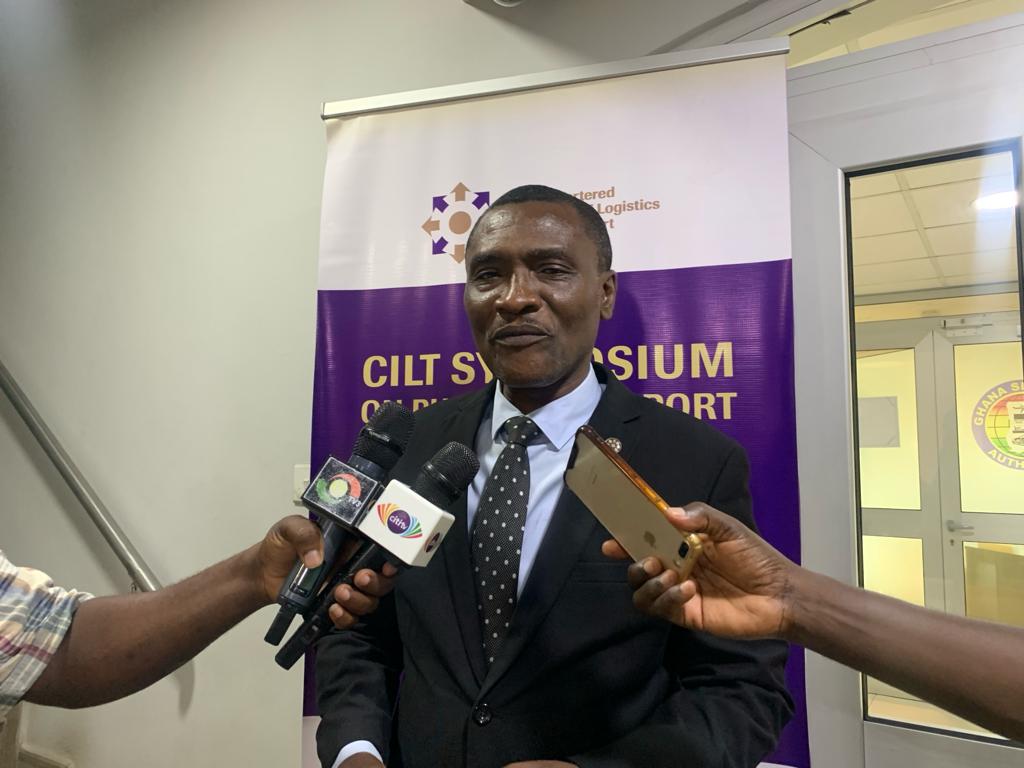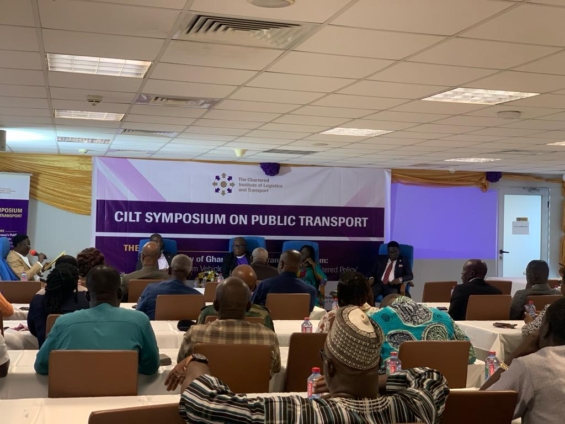The Executive Chairman of AB and David Africa, David Ofosu-Dorte, has highlighted the pressing need for a more coordinated and efficient approach to address issues related to the country's public transport sector.
Delivering the keynote address at a Chartered Institute of Logistics and Transport (CILT) Symposium on Public Transport, the consultant emphasised the historical context and the importance of reverting to a more centralised model for transport governance to enhance efficiency.
Mr. Ofosu-Dorte began by addressing a fundamental issue that plagues the Ghanaian transport sector, stating, "Lack of coordinated thinking, and this is not only at the Ministry or the Transport sector level; most of our state agencies tend not to talk to each other."

He underscored the lack of collaboration and synergy among various government entities responsible for transport and infrastructure.
Sharing insights from the past, specifically, the approach employed in 1998, which he believed was highly effective, he explained, that all the transport agencies were brought together under what we called the Ministry of Roads and Transport (MRT).
"The idea of MRT was to have one place where the infrastructure, the operators, and everybody was in one place and coordinated with Deputy Ministers in charge of various sectors. Why we broke it up, I still don’t understand.

"I believe that we ought to go back to that system because Ghana is not India, where the railway alone should be a Ministry on its own. Even at the peak of the railway in Ghana, we only had 963 km of rail line so for us to create ministries for those sectors beats my imagination," he said on Thursday.
He stressed his belief that it is imperative for Ghana to revisit this approach to enhance the coordination and efficiency of the country's transport sector.
In Mr. Ofosu-Dorte's view, a Ministry that unifies and coordinates all transport sectors would serve as a "one-stop shop" to address the nation's transportation challenges.
"If there was a Ministry that coordinated all the transport sectors and became a one-stop shop, it would help solve a lot of problems. So we need to bring all these ministries back together, especially if we want to reduce the size of government.”
The event which was themed "A Review of Ghana's Transport System: Moving from Vehicle-Centered Policy to Human-Centered Policy," aimed to address challenges in the transport sector related to policy formulation and implementation and propose solutions that prioritize the human aspect of transportation.

On his part, the President of CILT Ghana, Engineer Mark Amoamah, highlighted some of the challenges the event seeks to address:
"One significant challenge facing many cities today is the excessive number of cars, resulting in congestion and related health issues. Governments have invested time, energy, and money in building roads to accommodate cars, but this often leads to indulged demand, where increasing road capacity encourages more people to drive, resulting in more traffic and congestion. Cars are the least space-efficient mode of transport in cities. A human-centered approach to transport planning represents a paradigm shift.
"Mobility to accessibility: Meeting the diverse needs of the population, including children, women, the elderly, and the physically challenged
"Private Automobiles to shared modes of transport and multimodal transport, encouraging various ways of moving people.
"Shifting from improving efficiency/effectiveness to prioritising diversity, equality, and health. Key health challenges related to transportation, such as physical inactivity and air pollution, should be addressed
"CILT Ghana believes that through constructive dialogue and collaboration, we can address current issues and create a sustainable and accessible public transport system that serves the socio-economic needs of Ghana's population through improved infrastructure, technology, effective coordination, and stakeholder engagement."
Latest Stories
-
Samson’s Take: Arrogance of Power, Shameful Policing
3 hours -
Burnley score late to draw with Manchester United at Old Trafford
5 hours -
Bayer Leverkusen extend unbeaten run to 46 games after draw with Stuttgart
5 hours -
Chelsea come from two goals down to draw against Aston Villa
5 hours -
Andre Ayew scores in Le Havre’s 3-3 draw with PSG
5 hours -
GPL 2023/24: Kotoko draw with Medeama; Samartex go 7 points clear of Nations FC
6 hours -
Mahama cuts sod for construction of new multipurpose Jakpa palace in Damongo
6 hours -
NSS management assists Papao fire victims
6 hours -
EXPLAINER: Will dumsor end soon?
7 hours -
IMANI Africa takes on EC, accuses it of lying and publishing half truths
8 hours -
Manasseh Azure calls for investigation and prosecution of those responsible for GRA/SML contract
8 hours -
Kwesi Atuahene: Ghana’s health capital depends on HealthTech – Africa Center for Digital Transformation
8 hours -
13 signs your wife is planning on leaving you and you have no idea
8 hours -
IMANI Africa: Ghana’s EC’s dangerous and pathological conduct
9 hours -
If I speak there will be fire – Salah on Klopp row
9 hours

